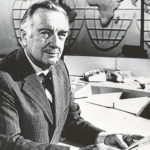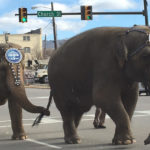
Nick Cave is an Australian singer-songwriter, actor, novelist, and screenwriter who played a prominent role in the postpunk movement as front man for the bands the Birthday Party and the Bad Seeds. He is also the author of the blog, The Red Cave.
Someone recently wrote to him, asking how he deals with the loss of his son, who died from a fall during an LSD episode. Cave’s response gives light to how he survived the loss: he allowed his son to help.
This year’s holiday season is difficult to celebrate without physical contact with friends and family, but especially hard for a person whose heart has been broken by a loved one’s death.
Hey first I wanna say really like your music i have lost my beautiful wife in cancer and my dear brother in covid 19 my question to you is how keep you going on after lost your son its hard sometimes to keep going on with life. ~MATTI, STOCKHOLM, SWEDEN
– – – – – – – – – – – – – –
Dear Matti,
There is little to say to someone who has lost a loved one that is of itself any real help. That has been my experience. Language falls short before the immensity of the experience of grief. There are simply not the words. My well-meaning and desperately worried friends would speak into my grief, using words that made no sense. They would tell me that my son lived in my heart, for example, but I genuinely did not understand these words because when I searched my heart I found nothing but chaos and despair.
One desperate morning, however, I did the most simple of things and perhaps this can help you with the loss of your wife, and your brother, more than my words. I sat by myself, in a quiet space, and called upon my son by name. I closed my eyes and imagined lifting him from my heart — this tormented place in which I was told he lived — and I positioned him outside of my body, next to me, beside me. I said, “You are my son and now you are beside me.” These few words had a powerful, vibrational effect, and this simple act of imagination was the first step in a process that would eventually lead me back to the world. By performing this act I was temporarily released from the rational world, a merciless place that gave me no peace, and given access to an impossible realm where I could form an increasingly resolute relationship with the spiritual idea of my lost child.
I began to feel Arthur’s presence. I talked to him. He talked to me. I took him with me wherever I went. I toured Europe and America with the ‘In Conversations’ show and he sat with me in my dressing room, or later at night in my hotel, or he escorted me onto stage and stood there beside me. I felt emboldened by his constructed presence, or perhaps true presence — who knows? What did it matter? I felt increasingly empowered, unafraid, as I allowed him to accompany me out of my boundless grief. Sometimes, on stage, I would look out at the audience and feel a collective spiritual influence attending to everyone. It was a deeply powerful experience and testament to the restorative force of our imaginings — that child of God, that divine invention — rescuing me from my catastrophic heart and in doing so freeing himself from the convulsion of my grief.
Matti, forgive me if this makes no sense to you, but perhaps there is a way to summon your wife and dear brother and release them from your despair so that they can attend to you — allow them to become your spiritual companions in that impossible realm, to look after you in their imagined presence, and guide you forward until things get better. For they do, in time, they do.
Love, Nick






























